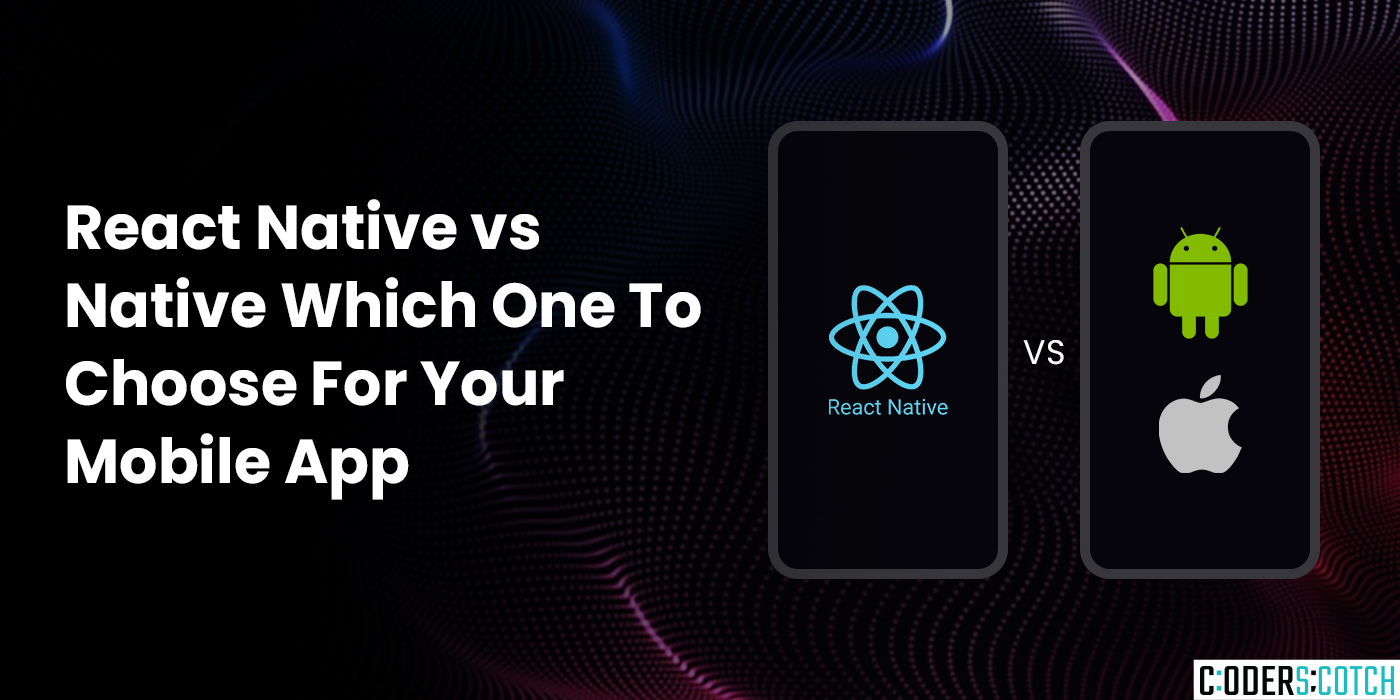React Native vs Native: Which One To Choose For Your Mobile App

In the ever-evolving landscape of mobile app development, developers are often faced with the dilemma of choosing between React Native and Native frameworks. Both have their strengths and weaknesses, and the decision ultimately depends on various factors such as project requirements, development timeline, and team expertise. In this blog post, we’ll delve into the differences between React Native and Native development and explore when each might be the better choice for your mobile app.
Understanding React Native and Native Development
React Native: React Native is an open-source framework developed by Facebook that allows developers to build cross-platform mobile applications using JavaScript and React. It enables developers to write code once and deploy it across both iOS and Android platforms, saving time and effort in development.
Native Development: Native development involves building mobile applications specifically for a particular platform using the platform’s native languages and tools, such as Swift or Objective-C for iOS and Java or Kotlin for Android. Native apps offer high performance, better access to device features, and platform-specific user experiences.
Factors to Consider
- Performance:
- React Native: While React Native offers good performance, it may not match the performance of fully native apps, especially for complex and graphics-intensive applications.
- Native Development: Native apps typically offer superior performance as they leverage platform-specific optimizations and APIs, providing smoother user experiences.
- Development Time:
- React Native: React Native accelerates development time by allowing developers to write code once and deploy it across multiple platforms. It also offers hot reloading, enabling developers to see changes instantly without recompiling the entire app.
- Native Development: Developing separate codebases for iOS and Android requires more time and resources compared to React Native. However, native development provides greater control over the user interface and app behavior.
- User Experience:
- React Native: React Native allows for the development of cross-platform apps with a single codebase, but achieving platform-specific UI/UX may require additional effort.
- Native Development: Native development enables developers to create highly polished and platform-specific user experiences, leveraging the native capabilities and design guidelines of each platform.
- Access to Native Features:
- React Native: React Native provides access to many native device features through third-party libraries and APIs. However, some advanced or platform-specific features may require writing native code modules.
- Native Development: Native development offers seamless access to all platform-specific features and APIs, allowing developers to take full advantage of the device’s capabilities.
Conclusion
Choosing between React Native and Native development depends on your project’s specific requirements, priorities, and constraints. Here’s a summary to help you decide:
- Choose React Native if you prioritize faster development time, code reusability across platforms, and a large community ecosystem.
- Choose Native development if you require maximum performance, seamless access to platform-specific features, and highly polished user experiences tailored to each platform.
In many cases, the decision may not be binary, and a hybrid approach combining React Native with native code modules may offer the best of both worlds. Ultimately, understanding the strengths and limitations of each approach is crucial in making an informed decision for your mobile app development project.
